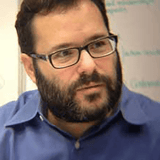Summary
Most people become researchers, designers, and writers in order to make an impact. And there is no setting more impactful than the public sector, where your work can literally change the lives of millions: veterans, taxpayers, students, refugees, policy makers, and more. Interested in making the move into the public sector? You'll find a rich, diverse, and at times confusing landscape of government agencies at all levels, where such terms as "user experience," "customer experience," and "human centered design" are still relatively foreign. To get hired there and to get things done, you'll need to understand the civic landscape and the unique constraints it places on designing products and services. Join us for a discussion with three civic design practitioners who will answer your questions and help you decode what's involved in understanding the landscape of design in the public sector.
Key Insights
-
•
Transitioning to public sector design involves navigating complex stakeholder ecosystems and technical constraints distinct from private sector work.
-
•
Understanding statutory responsibilities and policy constraints is essential, as they strongly limit what can be changed.
-
•
Pacing oneself and preparing to brace for momentum helps prevent burnout in the slow-moving, complex public sector.
-
•
The public sector prioritizes broad impact and accessibility over competitive market share.
-
•
Acronyms and jargon in the federal space create a significant language barrier for newcomers.
-
•
Onboarding in government design roles is often informal and relies heavily on self-directed learning and trial by fire.
-
•
Being a generalist with the ability to navigate multiple perspectives improves effectiveness in Civic Tech roles.
-
•
Building trust with legal, political, and career leadership is critical for successful public sector design projects.
-
•
Community and peer support networks help alleviate feelings of isolation common in public sector design roles.
-
•
Private sector frameworks like delight and loyalty metrics don't translate well to government work, where trust is paramount.
Notable Quotes
"I didn’t understand just how complex everything was, not only on the stakeholder side but the technology side as well."
"You only can set the pace. That pace will be your choice but your ambition and motivation mean you’re less busy than you think you are."
"It took me about a year and a half of pushing hard before I realized I was completely burnt out."
"In the federal space, it’s about broadening your reach, not market share."
"There’s a whole new language, a whole new lexicon, and sometimes the same acronym means different things in different agencies."
"Onboarding was basically go to this meeting and be hopeful you’ll understand what’s happening."
"People who have a generalist mindset do quite well because they can jump between different meetings and maintain perspective."
"Trust has been a really good measure on behalf of users trusting the thing you’re designing and the government."
"Don’t talk about delight or loyalty; those don’t work in Civic Tech because people are often in terrible situations and just need help."
"Careers in Civic Tech aren’t ladders, they’re more like jungle gyms where you can move laterally in any direction you want."
Or choose a question:
















More Videos

"Stop saying rest is a luxury or a privilege. It is not. It is a human right."
Zariah CameronReDesigning Wellbeing for Equitable Care in the Workplace
September 23, 2024

"Priorities aren’t priorities until they’ve been prioritized with attributes and values."
John Cutler Harry MaxPrioritization for designers and product managers (1st of 3 seminars) (Videoconference)
June 13, 2024

"Sharing with context can really help others to make those connections as well."
Nick CochranGrowing in Enterprise Design through Making Connections
June 3, 2019

"Pilot and test your ideas before committing whenever possible to avoid unnecessary disruption."
Deanna SmithLeading Change with Confidence: Strategies for Optimizing Your Process
September 23, 2024

"We started the Digital Service as a subsidiary company of the government, not just a government unit."
Magdalena ZadaraZero Hour: How to Get Far Quickly When Starting Your Digital Service Unit Late
November 16, 2022

"We didn’t exploit the knowledge gap. Everyone was willing to say I don’t know. Can you help me?"
Nova Wehman-BrownWe've Never Done This Before
June 4, 2019

"Artificial intelligence is about building human-like intelligence. This has opened up a golden opportunity for all of us to make a big impact."
Liwei DaiThe Heart and Brain of the AI Research
March 31, 2020

"The Digital Response Unit was a source of situational awareness and air traffic control within the flurry of daily COVID case counts and policy decisions."
Gordon Ross12 Months of COVID-19 Design and Digital Response with the British Columbia Government
December 8, 2021

"I got a huge raise and a great performance rating, and I didn’t give a shit at all because my marriage had fallen apart."
Tutti TaygerlyMake Space to Lead
June 12, 2021



















